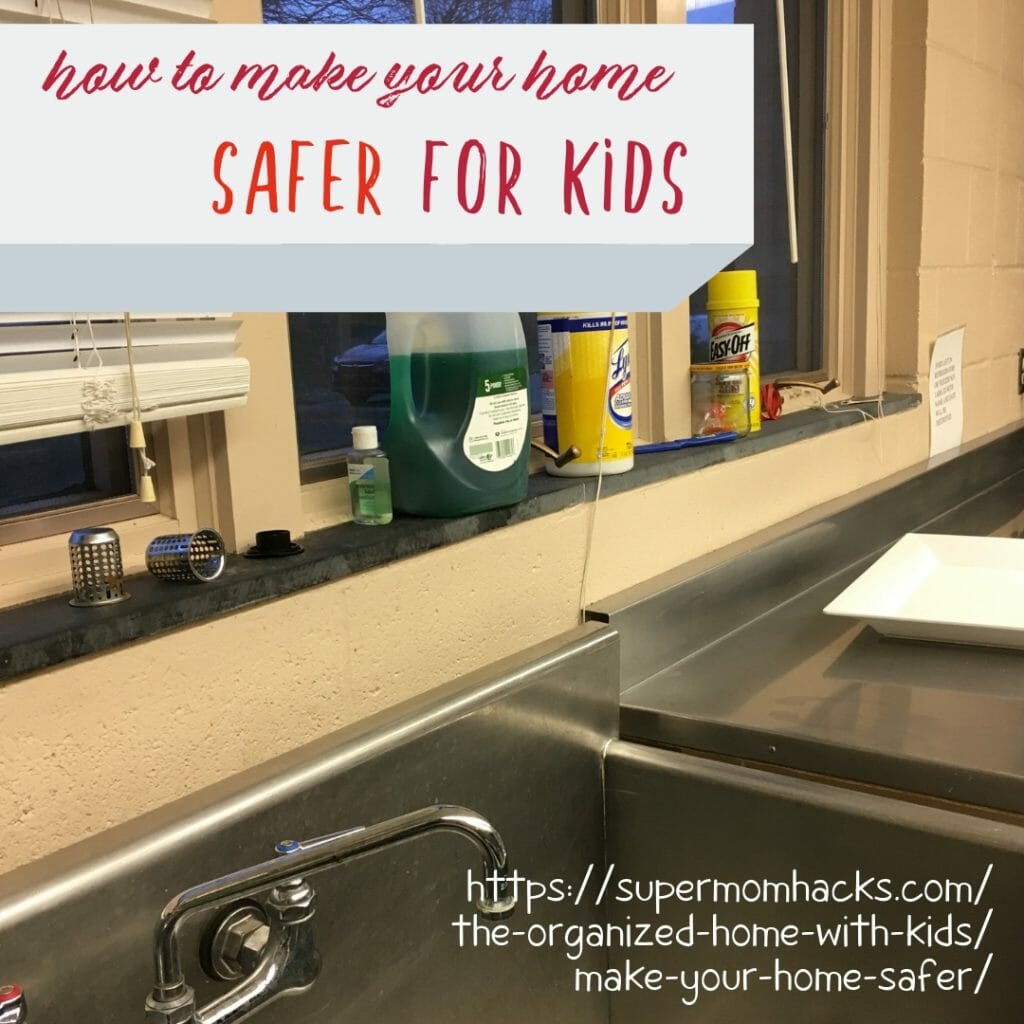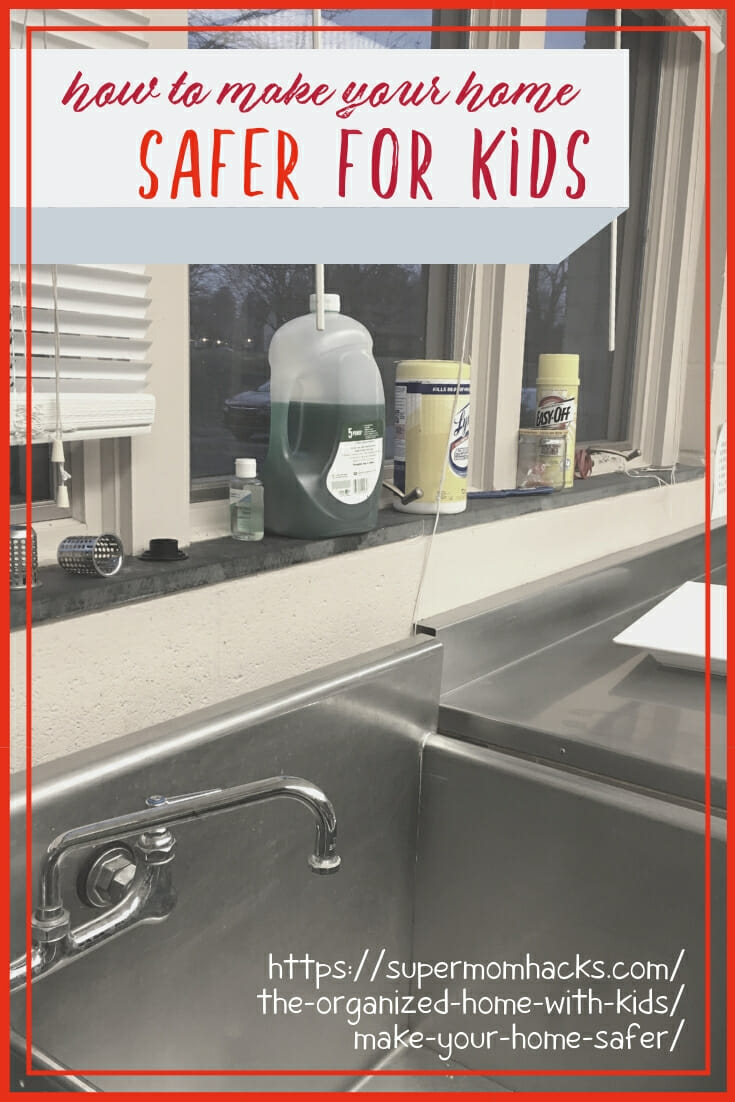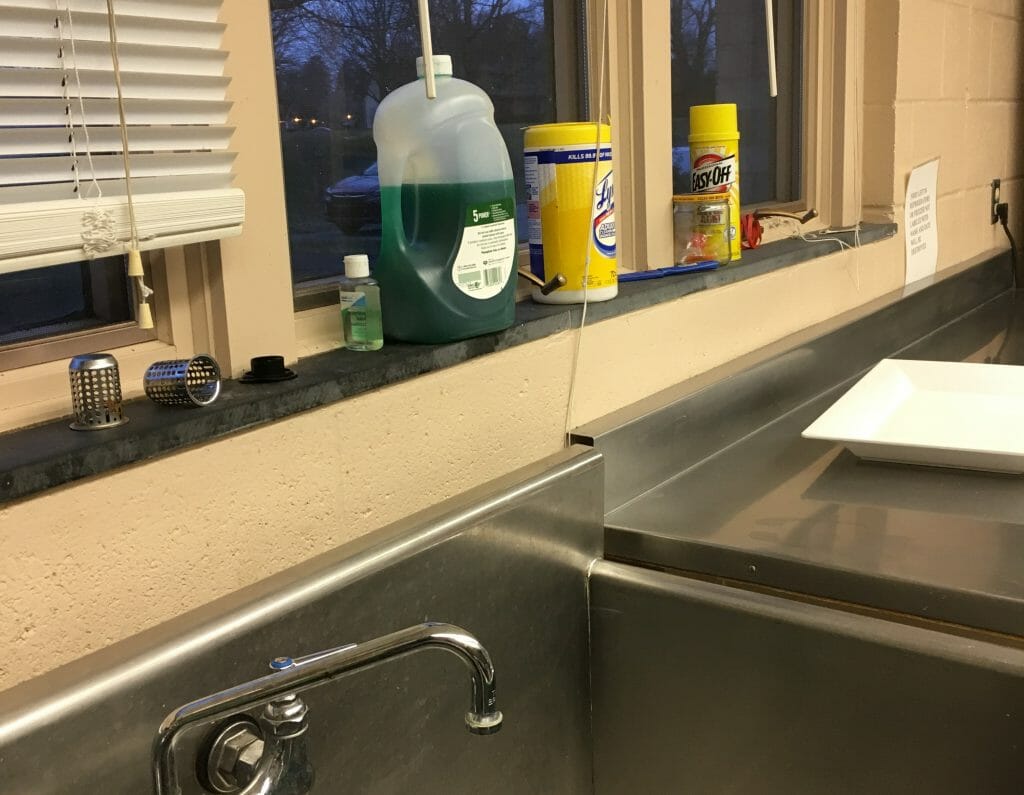Safety Hacks To Make Your Home More Family-Friendly:
You keep your home well-maintained. You’ve got the safety latches on every cupboard, and all the outlets blocked. You deter unwanted intruders by staying on top of home security. You’ve even kid-proofed your kitchen. But does that mean your home is truly a safe place for your family to live? You’d be surprised at what little things can help make your home safer for kids (and adults!) to live in.
Keeping our families healthy is more than just nutritious meals, exercise, and monitoring screen time. These tips will help you stay on top of some of the less-obvious threats to your family’s health, safety, and well-being.

This is a collaboration post. However, please know I stand behind everything written here, and only include links to products/services/resources I’m willing to recommend personally.
How To Make Your Home Safer For Kids (And Grownups!)
1. Keep It Clean
Keeping your house clean is one of the best ways to keep your family healthy. Especially in cooler months when kiddos bring all sorts of germs home from school and daycare, maintaining a clean environment (along with basic hygiene) will help keep from everyone else getting sick.
RELATED POST: Teaching Your Child Good Personal Hygiene
RELATED POST: How To Keep Your Child Healthy During Winter
Besides staying on top of the routine cleaning, like wiping down counters and vacuuming/sweeping floors, you need to keep all those germs that kids track in at bay. So wipe down doorknobs, light switches, etc. with antibacterial wipes periodically, especially if someone is sick at home.
You might also call a professional company like SwiftClean every now and again and have them do a deep clean of the house. When you’re a busy parent, you probably don’t have the time to do that yourself and there will be areas that you’ve missed. But hiring the pros every few months can help you stay on top of all the germs.
2. Regulate Temperature and Humidity
Did you know that temperature and humidity levels can affect your family’s health?
If your house is freezing cold all the time, it’s a lot easier for your kids to get sick. So make sure your home is appropriately heated in cooler weather. This is especially important during the winter because kids have a higher risk of getting ill when the weather is bad. If you really struggle to keep the house warm, you might consider adding more insulation to your walls or attic. If your windows and doors are old and drafty, replacing them can also help a lot.
Likewise, in summertime it’s important to keep your family members (especially young children and elderly relatives) from overheating. But an over-air-conditioned home can be equally problematic. It’s important to keep the temperature comfortable but not too cold.
And finally, humidity levels have more of an effect on how we feel than many people may realize. Too little humidity (especially in winter) can leave people waking up congested and with dried-out throats and sinuses. But too much humidity (especially in summer) is a prime invitation for mold, mildew, and dust mites – all common allergen triggers – to multiply. So stay on top of your indoor humidity levels, and take steps to control them as needed.
3. Test For Dangerous Materials
What year was your home built? Any home built before the 1980s may contain lead paint and/or asbestos. (Asbestos was only banned in all building materials in 1977, lead paint in 1978.) If these building materials are still present in your home – even under layers of newer paint and insulation – they can pose a serious health hazard to your family.
Not sure whether your home contains any of these dangerous materials? It’s better to be on the safe side and get it checked by a professional. If they do find anything, they’ll be able to remove it safely, and make sure that it’s not getting into the air and harming your kid’s health.
And regardless of when your home was built, radon gas emitted naturally from the earth can be deadly. Test kits are inexpensive and you can run the test yourself. If your home tests high (as ours did), remediation isn’t cheap, but is way better than an untimely death from lung cancer. You’ll need to have the pros install a remediation system for you, but it’s money well spent.
4. Monitor Indoor Air Pollution
Air pollution in the home is a bigger problem than people realize, and it’s often worse than it is outdoors. So many different things can cause or worsen indoor air pollution. Harsh cleaning products, chemicals from paint/fabrics/furniture, and pollution that seeps in from outside are all common culprits. Even high carbon monoxide levels can make your home an unhealthy place to live.
But so can those dank and dusty corners of the basement, the musty bathroom or kitchen without proper ventilation, and carpeting where germs and dust mites fester. And on spring or summer days when pollen counts are high, open windows are an invitation to misery for people with seasonal allergies.
RELATED POST: Is Poor Indoor Air Quality Making Your Family Sick?
RELATED POST: How To Allergy Proof Your Home
As I noted above, monitoring indoor humidity and temperature are a start. So are choosing more environmentally-friendly cleaning options, paints, and other consumer goods (look for low- to no VOC or volatile organic compounds).
And it’s worth looking into some way to filter the air passing through your home, to keep harmful particles at bay. Much as I love a toasty fire in winter or windows open when spring comes, it’s just not worth it for me anymore. The smoke particles and pollen that enter our indoor air trigger my asthma and allergies, and make breathing near-impossible. The most extreme steps I’ve taken to improve indoor air quality where I live – minimizing carpet and ensuring we have air-conditioning [which helps filter the air] – weren’t cheap. But they mean my family and I can actually live in our home without getting sick; that is priceless.
Your turn:
What steps have you taken to make your home safer (and healthier) for your family to live in? What did I miss? Let us know in the comments!
If you enjoyed this post on making your home safer for kids, why not share it with others by pinning this image?

NOTE: This site contains affiliate links. I may earn a small commission from any purchases made through affiliate links, at no additional cost to you. For more information, please read the full disclosure/privacy policy.

